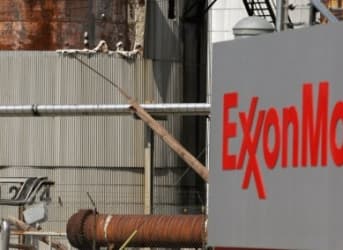For the first time in over two decades, ExxonMobil failed to replace the oil and gas that it pumped in a year.
ExxonMobil reported on February 19 that it added 1 billion barrels of oil equivalent to its portfolio in 2015, which replaced just 67 percent of its production. The so-called “reserve-replacement ratio” provides an indication on whether or not a company grew its reserve base after accounting for the oil extracted in a given year. That helps investors gauge the growth prospects for a specific driller. Companies always try to grow their reserve base, but failing to achieve at least a 100 percent ratio tends to be viewed as a problem. Related: Activist Investors Crushed By Oil Crash
ExxonMobil has been particularly good at achieving that goal. Over the past decade, the company has averaged a 115 percent reserve-replacement ratio. The company has 24.8 billion barrels of oil equivalent in reserves, which is equal to about 16 years’ worth of production. According to Bloomberg, Exxon had 17.4 years’ worth of reserves in 2014.
Last year, Exxon added reserves in Abu Dhabi, Canada, Kazakhstan and Angola.
Exxon has historically performed much better than some of its peers. Shell, for example, averaged just a 67 percent reserve-replacement ratio annually between 2012 and 2014. The Anglo-Dutch company only replaced 26 percent of its produced reserves in 2014, a particularly bad year. Related: Downward Trend For Bakken Oil Production Set To Continue
In fact, 2014 was a bad year for most of the oil majors. BP, Chevron, ExxonMobil, Shell, and Total saw their collective reserves fall from 80 billion boe to just 78.6 billion boe. The decline is due to the fact that volumes from new discoveries fell 24 percent in 2014 from a year before.
The failure to achieve a 100 percent reserve-replacement ratio is an indication that companies are extracting oil at a faster rate than it can be replaced. The volume of oil under the control of the oil majors is still vast, but lower reserve-replacement ratios could raise long-term problems. Those challenges become all the more pressing because oil companies are slashing exploration budgets amid the crash in oil prices.
By Charles Kennedy of Oilprice.com
More Top Reads From Oilprice.com:
- Solar Power Growth Soars In Africa
- Eagle Ford Struggles, But It’s Still The Sweet Spot
- Gazprom Threatens To Cut Off Gas Supply To Kyrgyzstan


















